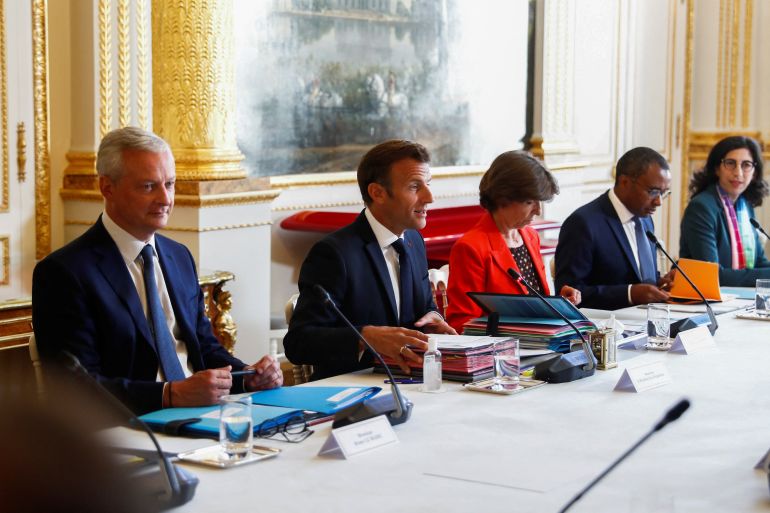Macron warns France needs to prepare for difficult time ahead
Macron says that France faces ‘sacrifices’ in a new era marked by climate change and Russia’s war in Ukraine.

French President Emmanuel Macron has warned that France faces “sacrifices” in a new era marked by climate change and instability caused by Russia’s full-scale invasion of Ukraine that signalled “the end of abundance”.
After a summer marked by drought, massive wildfires and continuing loss of life in Ukraine, the 44-year-old leader on Wednesday delivered a stark speech at the start of the first cabinet meeting after the country’s traditional August holiday break.
Keep reading
list of 3 itemsFrance’s Macron talks energy with Saudi Crown Prince MBS in Paris
Thousands evacuated from France’s Gironde as forest fires rage
“I believe that we are in the process of living through a tipping point or great upheaval. Firstly because we are living through … the end of what could seem like the end of abundance,” he said.
Referring to the war in Ukraine, Macron also said: “Our system based on freedom in which we have become used to living, sometimes when we need to defend it, it can entail making sacrifices.”
The speech appeared designed to prepare the country for what promises to be a difficult winter ahead, with energy prices rising sharply and many families struggling with inflation.
‘The end of abundance’
The severe drought over the summer, leading to water restrictions across most of the country, has also caused many French people to express fears about the increasingly obvious effects of climate change.
“This overview that I’m giving – the end of abundance, the end of insouciance, the end of assumptions – it’s ultimately a tipping point that we are going through that can lead our citizens to feel a lot of anxiety,” Macron continued.
“Faced with this, we have duties, the first of which is to speak frankly and very clearly without doom-mongering,” he said.
Macron was re-elected in April to a second term but lost his parliamentary majority in elections in June, meaning Prime Minister Elisabeth Borne heads a minority government that depends on opposition parties to pass legislation.